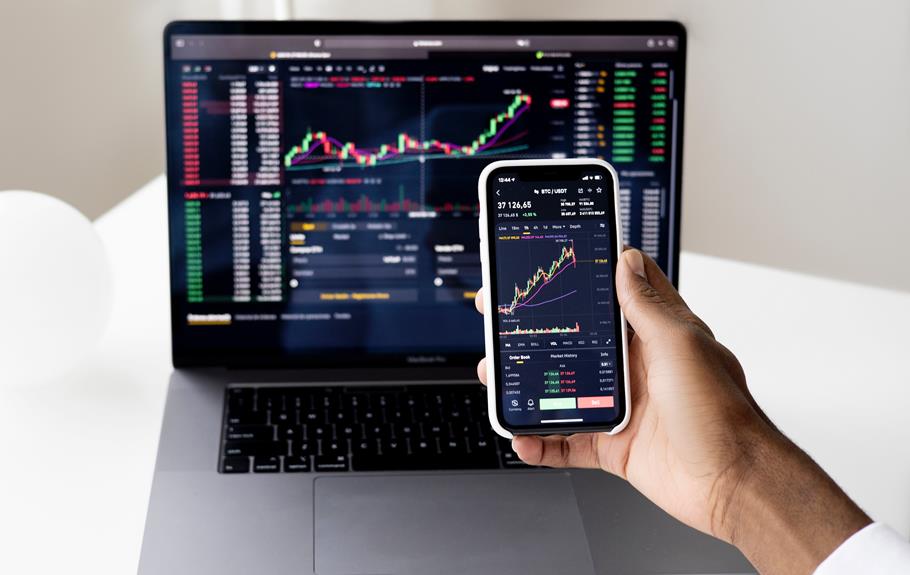Planning a trip and need to exchange your currency? Beware of the pitfalls that can drain your wallet! In this article, we will unveil the worst places for currency exchange and the risks involved.
From airport shops to street exchanges, discover why these options may not be your best bet. We'll even explore the challenges faced when exchanging currency in tourist areas.
But don't worry, we won't leave you empty-handed. We'll also provide alternatives to traditional currency exchange services. By understanding the factors that affect exchange rates and considering important factors like accessibility, convenience, and safety, you can make informed choices and get the most bang for your buck.
So, let's dive in and navigate the world of currency exchange pitfalls.
Key Takeaways
- Airport currency exchange shops offer the worst exchange rates.
- Currency exchange stores in markets or tourist areas may offer better rates, but travelers are still likely to get a bad deal.
- It is recommended to use ATMs or local banks instead of currency exchange stores.
- Online currency exchange platforms, peer-to-peer currency exchange services, and prepaid travel cards are alternatives that offer competitive rates.
Airport Currency Exchange
If you're traveling and need to exchange currency, avoid airport currency exchange shops. Currency exchange rates at airports are notoriously unfavorable, often offering the worst exchange rates compared to other options. These shops take advantage of travelers' immediate need for local currency, charging high fees and commissions.
Best practices for exchanging currency at airports involve seeking alternatives such as using credit cards for purchases, as they offer the banks' exchange rate, which is typically better. Many credit cards also don't charge extra foreign exchange fees.
Another option is to use ATMs or local banks, which often offer better rates than airport exchange shops. ATMs are convenient and may have no foreign ATM fees, making them a preferable choice.
Currency Exchange Stores
To avoid unfavorable exchange rates and potential scams, steer clear of currency exchange stores when traveling. While currency exchange stores in markets or tourist areas may offer slightly better rates than airport exchanges, you're still likely to get a bad deal. It's recommended to use ATMs or local banks instead, as they often offer better rates.
When comparing exchange rates, it's important to note that currency exchanges charge a premium on the international spot rate. Banks and ATMs, on the other hand, offer more favorable rates. Although there may be ATM or credit card fees, the overall rate is still better compared to currency exchange stores.
Risks of Exchanging Currency in Airports
Exchanging currency in airports comes with several risks and disadvantages. When you choose to exchange currency at an airport, you expose yourself to potential airport currency scams and hidden fees. Here are the risks you should be aware of:
- Airport currency scams: Some exchange counters at airports may take advantage of unsuspecting travelers by offering unfavorable exchange rates or even providing counterfeit currency.
- Hidden fees in airport exchange: In addition to the already poor exchange rates, airports often charge additional fees and commissions, further diminishing the value of your exchanged currency.
These risks, coupled with the limited currency options available and the crowded and busy exchange counters, make airports a less than ideal place to exchange currency.
To avoid falling victim to these risks, it's recommended to consider alternative options such as ATMs, local banks, or online currency exchange platforms.
Dangers of Exchanging Currency on the Street
When exchanging currency on the street, you put yourself at risk for counterfeit currency, theft, and scams. Street exchange risks are prevalent due to the lack of regulation and legal protection.
There's a higher likelihood of receiving counterfeit currency, as street vendors may not have the means to verify the authenticity of the bills.
Additionally, the risk of theft or scams is heightened in these situations, as street exchanges often attract opportunistic individuals looking to take advantage of unsuspecting tourists.
The exchange rates offered on the street may also be unreliable, potentially resulting in a poor exchange rate for your money.
It's important to be cautious and consider safer alternatives, such as using ATMs or reputable currency exchange services, to mitigate these risks and protect your financial well-being.
Challenges of Exchanging Currency in Tourist Areas
In tourist areas, you may encounter challenges when exchanging currency. These challenges can be frustrating and time-consuming, making the process more difficult than it needs to be.
Here are some of the challenges you may face:
- Language barriers: Communicating with the currency exchange staff can be challenging if they don't speak your language fluently. This can lead to misunderstandings and confusion, making the transaction more complicated.
- Long queues: Tourist areas are often crowded with people looking to exchange their money, resulting in long queues at currency exchange counters. Waiting in line for extended periods can be tiresome and waste valuable time during your trip.
These challenges highlight the importance of planning ahead and considering alternative options to exchange your currency in tourist areas.
Alternatives to Traditional Currency Exchange Services
Consider other options for exchanging currency in tourist areas to avoid the challenges mentioned earlier.
Traditional currency exchange services may not always be the most convenient or cost-effective choice. Instead, you can explore alternatives such as online currency platforms and prepaid travel cards.
Online currency platforms offer competitive rates and allow you to exchange currency from the comfort of your own home.
Prepaid travel cards, on the other hand, offer favorable exchange rates and can be used like a debit card while traveling.
Some banks also offer fee-free currency exchange for account holders, which can save you money on fees and commissions.
Factors to Consider When Exchanging Currency
To make informed decisions when exchanging currency, evaluate the following factors:
- Exchange Rates: Currency exchange rates fluctuate daily, so it's important to compare rates offered by different banks and currency exchange services to get the best value for your money. Keep in mind that some places may charge high fees and commissions, which can significantly impact the amount you receive.
- Accessibility and Convenience: Consider the accessibility and convenience of exchange locations. Look for banks or ATMs that are easily accessible and located in safe areas. This will ensure that you can exchange your currency conveniently and securely.
Conclusion
When it comes to currency exchange, remember to prioritize safety and value for your money.
After considering the pros and cons of using online currency exchange platforms, as well as comparing the exchange rates offered by different banks and currency exchange services, it's clear that there are alternatives to traditional currency exchange services.
Online currency exchange platforms offer competitive rates, and peer-to-peer currency exchange services provide better rates. Some banks even offer fee-free currency exchange for account holders.
Additionally, prepaid travel cards with favorable exchange rates and using credit or debit cards with low foreign transaction fees are viable options.
Frequently Asked Questions
What Are Some Factors That Affect Currency Exchange Rates?
Political stability and economic indicators are key factors that affect currency exchange rates. These factors determine the confidence and attractiveness of a country's currency, influencing its value in the global market.
Where Can I Find the Best Exchange Rates for Currency?
You can find the best exchange rates for currency by exploring alternatives to traditional currency exchange services. Consider online platforms, peer-to-peer services, fee-free options from banks, prepaid travel cards, or using credit/debit cards with low foreign transaction fees.
What Are the Risks and Dangers of Exchanging Currency in Airports?
Exchanging currency in airports poses risks and dangers. Hidden fees and scams are common, along with limited options and inflated rates. It's best to avoid airport exchanges and opt for ATMs or local banks instead.
Are There Any Alternatives to Traditional Currency Exchange Services?
There are alternatives to traditional currency exchange services. Consider cryptocurrency options and peer-to-peer exchanges. These options often offer competitive rates and can provide a convenient and secure way to exchange currency.
What Factors Should I Consider When Exchanging Currency?
When exchanging currency, consider factors such as exchange fees and how to avoid scams. Research different rates offered by banks and services, prioritize safety and security, and opt for convenient and accessible exchange locations.



I was reading through some of your blog posts on this internet site and
I believe this web site is really instructive! Keep posting.Leadership